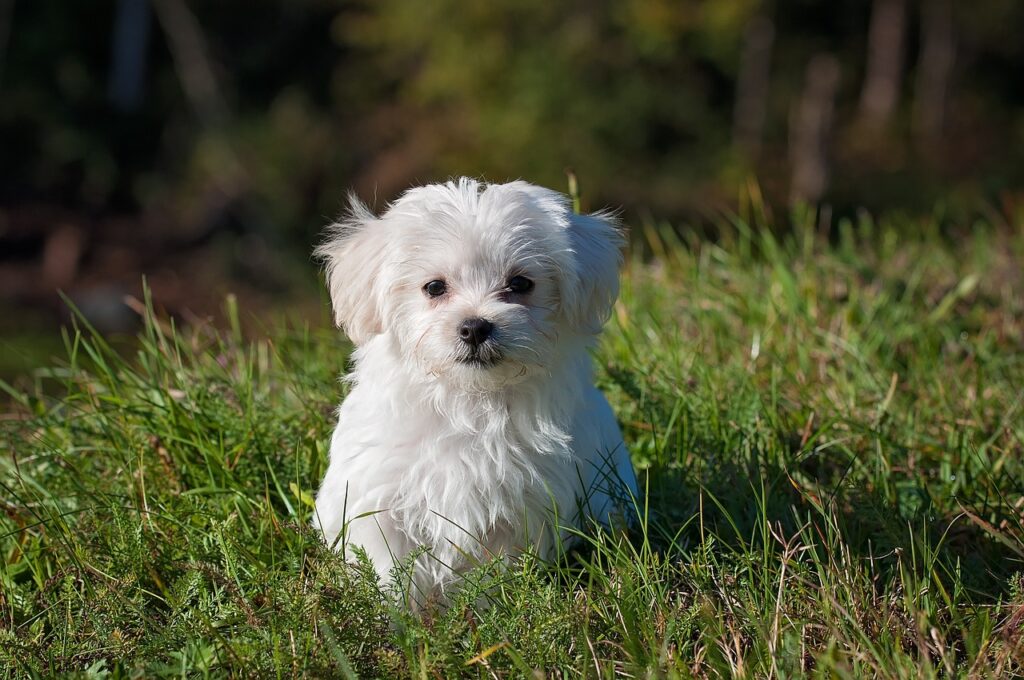Can Dogs Eat Coleslaw? – No, They Can’t
It’s a common scenario at picnics and BBQs—dogs eyeing up the table, hoping for a scrap. But when it comes to coleslaw, the answer is a resolute No. While it may seem like a harmless veggie treat, coleslaw is typically made with ingredients that are not dog-friendly. The creamy dressings often contain mayo or sour cream, which can be too rich for their digestive systems. Also, coleslaw might include onions or garlic, which are toxic to dogs. The risks are not worth the treat.
Can Puppies Eat Coleslaw?
When it comes to puppies, their bodies are even more sensitive than adult dogs. The short answer is again a firm No. The complex mix of ingredients in coleslaw—from the dressing to the added spices—can wreak havoc on a puppy’s digestive system. Their immature guts are not equipped to handle the high-fat content or any potentially toxic substances like onion or garlic, which could be present even in trace amounts.
Why is Coleslaw Harmful for Dogs?
The primary concerns with coleslaw for dogs are the ingredients that go into making it. While the cabbage itself isn’t the problem, it’s the company it keeps in the bowl that spells trouble.
High Fats and Dairy
Coleslaws are usually dressed with mayonnaise or other creamy dressings, which are high in fat. Too much fat in a dog’s diet can lead to pancreatitis, a painful and potentially dangerous condition.
Onions and Garlic
Both onions and garlic are toxic to dogs. Even small amounts can cause gastrointestinal irritation and lead to red blood cell damage, resulting in anemia. Unfortunately, these ingredients are common in coleslaw recipes.
Other Harmful Ingredients
Sugar, salt, and various spices often found in coleslaw can be harmful to dogs. Sugar can contribute to weight gain and dental problems, while too much salt can lead to sodium ion poisoning.
Symptoms to Watch Out For After Dogs Consume Coleslaw
- Vomiting or Diarrhea: These are common symptoms that something has upset your dog’s stomach. Monitor their behavior and any additional symptoms closely.
- Lethargy: A sudden lack of energy or interest could indicate your dog isn’t feeling well after eating something they shouldn’t have.
- Abdominal Pain: If your dog is more sensitive to touch around the belly or seems uncomfortable, it might be experiencing pain from ingesting coleslaw.
Immediate Steps to Take if Your Dog Eats Coleslaw
- Monitor: Keep a close watch on your dog for any signs of distress or illness following the ingestion of coleslaw.
- Contact Your Vet: If you notice any concerning symptoms, or if you know your dog consumed a large amount of coleslaw, don’t wait—call your vet immediately.
- Prevention is Key: Ensure that everyone in the household knows which foods are off-limits for dogs to prevent a repeat incident.
Safe Alternatives to Coleslaw
While coleslaw is dangerous for dogs, there are safe alternatives that they can enjoy. Consider offering your dog these safer food options instead:
- Carrots – They can be a crunchy, nutritious snack for dogs when offered in moderation.
- Apples – Given without seeds or the core, apples can be a sweet, healthy treat.
- Green Beans – These are low in calories and good for a dog’s digestive system.
Conclusion
Though coleslaw might appear to be a harmless, vegetable-based food, it’s not suitable for dogs due to potentially toxic ingredients and high-fat dressing. Dog owners must be vigilant when it comes to their pets’ diets, avoiding the risks and opting for healthier, safer alternatives whenever possible.
Frequently Asked Questions
What if my dog accidentally eats some coleslaw?
Keep an eye out for any adverse reactions, and if you notice any problematic symptoms, contact your vet as a precaution.
Can dogs eat cabbage?
In moderation and cooked without added ingredients, yes, dogs can eat plain cabbage. It can be good for them in small amounts.
Why are onions and garlic bad for dogs?
They contain compounds that can cause gastroenteritis and damage red blood cells, leading to anemia in dogs.
Are there any veggies dogs can’t eat?
Yes, avoid feeding dogs onions, garlic, and wild mushrooms. Always check if a vegetable is safe before feeding it to your dog.



